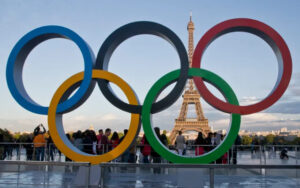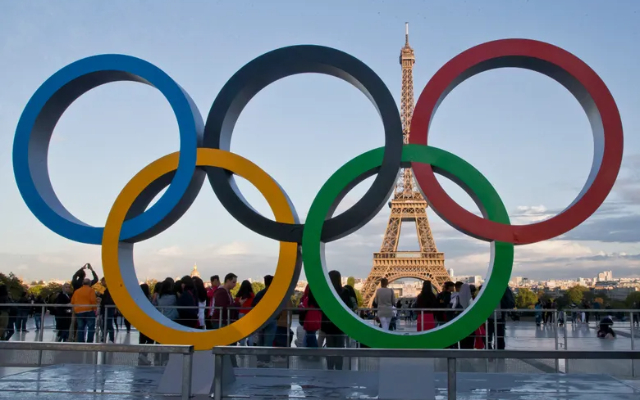
We travelled back from Paris yesterday. As we were getting ready to leave the hotel in the morning, a colleague who had already reached the airport called to say, “Don’t forget to wear your media accreditations; it will make your life easier.” As anticipated, the whole world and its cousins were leaving from Charles de Gaulle International Airport and there was more than obvious chaos – not least because airport personnel seemed to not treat the day’s heavy traffic with a greater urgency than usual.
For us, the members of the media, including photo journalists and broadcasters who have to travel with heavy equipment, an Olympic Lane is mandatory. And it should be pointed out very clearly at arrival points, not hidden away if at all it’s there. When we left Birmingham after the Commonwealth Games in 2022, we had access to a dedicated Games Lane. In Paris, none was spotted. Testing equipment was missing for the handbags that needed to go through special screening, making for long queues.
The next Olympics is in Los Angeles and while there won’t be the language issue, as was the case in Paris, we need to be assured of the basic logistical protocols. I can recall how during the FIFA World Cup in Qatar, after a late game the media bus had gotten lost on the highway – the driver unable to find his way between Al-Khor (where the Al-Bayt Stadium is situated) and Doha, where we were headed back. Not only did the driver not speak English – he turned out to be an Indian – he was also not able to figure out his own GPS. And had it not been for our group, who spoke to him in Hindi, calmed and navigated him, who knows how long the bus would have gone around in circles to and from Al-Bayt. The metro service was to close at 1 am and the bus made it to the metro station just in the nick of time. That, too, after locals told us there had been extensive drills for the drivers holding up the traffic, leading up to the football World Cup.
For the Latest Sports News: Click Here
 Can anybody imagine what stress such kinds of structural failures at mega sporting events puts on the journalists who are anyway under a constant pressure to break news, meet deadlines and file stories? When the accreditation process involves a painstaking detailing and the media isn’t exactly on a pleasure trip, why no access to media buses from accredited hotels in Paris? Our colleagues who were in Tokyo told us that the whole idea of booking in an IOC accredited media hotel was that there would be designated media transport at your doorstep as per a travel timetable. Same it was for the Games in Rio. And while each and every accredited media person was given a travel card for metro, team and bus rides within the city, the whole point of staying in an IOC accredited hotel failed because no media transport was available at those hotels. The closest metro station was more than a 15-minute walk. And media centres frequently lacked the basic hospitality services that are generally extended to the media by the organisers.
Can anybody imagine what stress such kinds of structural failures at mega sporting events puts on the journalists who are anyway under a constant pressure to break news, meet deadlines and file stories? When the accreditation process involves a painstaking detailing and the media isn’t exactly on a pleasure trip, why no access to media buses from accredited hotels in Paris? Our colleagues who were in Tokyo told us that the whole idea of booking in an IOC accredited media hotel was that there would be designated media transport at your doorstep as per a travel timetable. Same it was for the Games in Rio. And while each and every accredited media person was given a travel card for metro, team and bus rides within the city, the whole point of staying in an IOC accredited hotel failed because no media transport was available at those hotels. The closest metro station was more than a 15-minute walk. And media centres frequently lacked the basic hospitality services that are generally extended to the media by the organisers.
Such niggles are persistent at mega events, but possibly Paris had more of those than one had bargained for. And looking ahead to the next Olympics one begs the organisers to be more mindful of the media and its conveniences.




